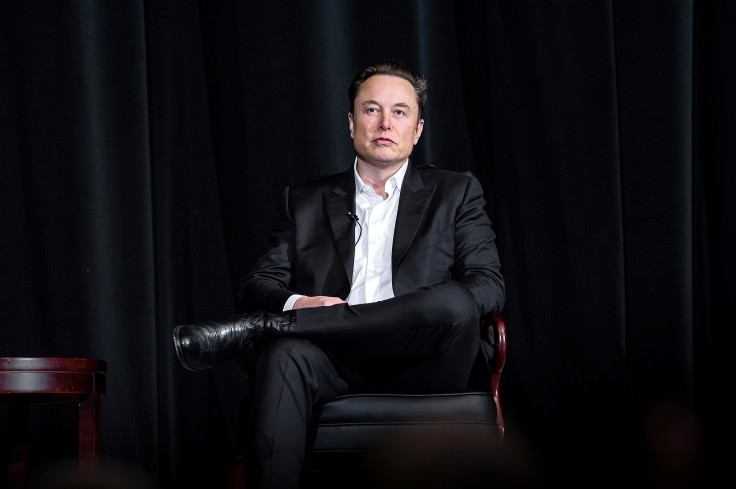Short-Seller Jim Chanos Calls Elon Musk 'Subsidy King' After Carbon Tax Proposal
Aside from talking about "wokeness", Elon Musk has recently been outspoken about topics like illegal immigration through border crossings.

Short-seller Jim Chanos challenged Tesla CEO Elon Musk's proposal for a carbon tax, raising questions about his motivations and political leanings. Musk, however, argues that such a tax is essential to combat climate change.
As expected, Musk's proposal for a carbon tax has sparked debate among his supporters, with some expressing support and others raising concerns.
A report from Electrek sheds light on a potential discrepancy, noting that while currently supported by some on the right, Musk's companies previously faced criticism within this group for receiving government subsidies.
However, following his acquisition of Twitter, Musk took several actions that pleased the right, including reinstating previously banned conservative accounts and expressing critical views of the Biden administration and certain Democratic policies.
He also began using terms like "wokeness" and discussed issues like illegal immigration to further align himself with some right-wing perspectives. As per the report, this shift in focus contributed to his increased support from that side of the political spectrum.
During this period, Musk, once a strong advocate for climate action, shifted his public discourse less towards the topic and Tesla's mission to accelerate the transition to renewable energy. Juggling leadership roles in several companies, he has also increased his engagement on political topics.
Elon Musk's recent stance on carbon tax draws attention
For the first time in a while, Musk has used his widely popular social media platform X to promote an idea that's considered left-wing, although it shouldn't be political. Musk wrote: "The only action needed to solve climate change is a carbon tax."
This statement came in response to a video clip shared by a Tesla influencer, showing Musk talking about the actions needed to combat the climate crisis.
The only action needed to solve climate change is is a carbon tax https://t.co/mEGhIkSVsn
— Elon Musk (@elonmusk) February 3, 2024
A carbon tax is not the answer at all https://t.co/kp8VEA7Qf3
— Hodgetwins (@hodgetwins) February 3, 2024
Taxation is theft, especially a carbon tax
— Hodgetwins (@hodgetwins) February 3, 2024
With all due respect Elon, theft cannot fix the weather.
— Robert ₿reedlove (@Breedlove22) February 4, 2024
"We need to go from untaxed negative externality, which is effectively a carbon subsidy of enormous size — $5.3 trillion, according to the IMF, every year. We need to move away from this and have a carbon tax," he said.
Musk has been pushing the idea of a carbon tax for a while now, and interestingly he has decided to introduce the idea to his new right-wing fans. Unsurprisingly, it didn't go down too well. The comments section was teeming with negative responses.
The Subsidy King (and new darling of the Right) calls for a broad new tax. $TSLA https://t.co/wblHL0nW62
— Diogenes (@WallStCynic) February 4, 2024
Jim Chanos, who was known for his Tesla short positions, also commented on Musk's post saying: "The Subsidy King (and new darling of the Right) calls for a broad new tax."
Chanos, who criticised Musk's attempt to gain more control of Tesla, is recognised for his notable bets against Enron and Tesla. He recently closed down his hedge fund Chanos & Co., which was founded as Kynikos Associates in 1985.
Chanos went on to label Musk "the new darling of the Right," citing the billionaire's repeated criticism of policies implemented by US President Joe Biden, especially on his platform X (formerly Twitter).
The International Monetary Fund (IMF) defines carbon taxes as "one of the most powerful and efficient tools at their disposal".
It is designed to "discourage the use of fossil fuels and encourage a shift to less-polluting fuels, thereby limiting the carbon dioxide (CO2) emissions that are by far the most prevalent greenhouse gas".
According to the latest IMF analysis, large emitting countries must introduce a carbon tax that rises quickly to $75 (£59.74) a ton in 2030, "consistent with limiting global warming to 2°C or less". It is equally important to ensure that carbon taxes are implemented in a careful and growth-friendly fashion. IMF believes this can be achieved by retooling the tax system in fair, creative and efficient ways.
Although Musk claims Tesla's electric vehicles and the company's energy subsidiary are sustainable energy solutions, research shows that the manufacturing of batteries used in electric vehicles (EVs) and the electricity used for charging contribute to pollution, thus diminishing the green-energy appeal of EVs.
Musk recently raised the possibility of using trade barriers to support local automakers against challenges from Chinese rivals.
© Copyright IBTimes 2024. All rights reserved.






